Plenary Talks. ITISE 2022.

Prof. Daniel Peña Sanchez De Rivera
Position: Professor at Universidad Carlos III de Madrid. Department of Statistics. Madrid (Spain)
Daniel Peña was born in Madrid in 1948. He received his PhD in Industrial Engineering from the Polytechnic University of Madrid, Bachelor’s Degrees in Sociology and Statistics from the Complutense University of Madrid and Business Administration ITP from Harvard. President of Carlos III University of Madrid in the period 2007- 2011 and re-elected in March 2011. He was Director of the Management Committee (1993-2000) and Vice Rector of the Carlos III University of Madrid (1992- 1995), where he is Full Professor of the Department of Statistics. He has also been Full Professor at the Polytechnic University of Madrid, the University of Wisconsin- Madison and the University of Chicago. He is Founding Director of the Quantitative Methods Department of the EOI Business School, of the Statistics Laboratory of the ETSII-UPM (the Higher Technical School for Industrial Engineering at the Polytechnic University of Madrid), as well as the Department of Economics and Statistics and Econometrics of the Carlos III University of Madrid. He has been Director of the “Revista Estadística Española” and President of the Spanish Society of Statistics and Operative Research (Sociedad Española de Estadística e Investigación Operativa). In the same field, he stands out as the Founding President of the Statistical Methods Committee of the Spanish Association for Quality and member of the State High Council of Statistics, Vice President of the Inter-American Institute of Statistics and President of European Courses in Advanced Statistics. He has published thirteen books and more than 190 research articles on Statistics, Quality and its Applications. He is Associate Editor of several international journals and has received national and international awards for research. In 2006 he received the Youden Award for the best article published in “Technometrics”. He is an honorary member of prestigious international associations such as the Institute of Mathematical Statistics and the American Statistical Association.
Some Recent Methods for Analyzing High Dimensional Time Series
This presentation will describe three recent advances that are useful for analyzing high dimensional time series. The first one concerns new ways for visualizing large sets of time series. Dynamic quantiles will be introduced and some multivariate plots will be shown illustrating ways to reveal the information in large sets of time series. The second one is clustering time series by dependency. A new way to cluster the series by their linear dependency will be described and shown to be able to split the set of series into homogeneous groups. The third one includes some recent approaches to estimate dynamic factor models. The relationship of factor model and Deep learning and some comments on the future evolution of the field of dependent high dimensional data will be discussed in the conclusions.

Prof. Martin Wagner
Position: Professor of Economics at the University of Klagenfurt, Chief Economic Advisor at the Bank of Slovenia and Fellow of the Macroeconomics and Economic Policy group at the Institute for Advanced Studies, Vienna
Martin Wagner currently is Professor of Economics at the University of Klagenfurt, Chief Economic Advisor at the Bank of Slovenia and Fellow of the Macroeconomics and Economic Policy group at the Institute for Advanced Studies, Vienna. From October 2017 until end of 2018 he was Chief Economist of the Bank of Slovenia, being on leave from Technical University Dortmund, where we has been Professor of Econometrics and Statistics in the Faculty of Statistics of the Technical University Dortmund from 2012 until 2019. He was educated in Vienna, at the Technical University and the Institute for Advanced Studies, obtaining Diplomas in Mathematics (1995) and Economics (1998), as well as his Doctorate (2000). He obtained his Habilitation in Economics in 2007 at the University of Bern. Martin Wagner has worked at the Technical University of Vienna, the Institute for Advanced Studies in Vienna, the University of Bern and has been Professor of Econometrics and Empirical Economics at the University of Graz before his arrival in Dortmund. Visiting positions have brought him to Princeton University and the European University Institute in Florence. His work has been published, amongst other outlets, in Journal of Econometrics, Econometric Theory, Journal of Applied Econometrics, Econometric Reviews, Econometrics, Oxford Bulletin of Economics and Statistics, Journal of Empirical Finance, Economics of Transition and Ecological Economics.
Title of the presentation: HAC Robust Estimation and Inference for Long-Run Equilibrium Relationships
Rafael Kawka, Faculty of Statistics, Technical University Dortmund, Dortmund, Germany Matthias Vetter, Department of Mathematics, Kiel University, Kiel, Germany Martin Wagner, Department of Economics, University of Klagenfurt, Klagenfurt, Austria, Bank of Slovenia, Ljubljana, Slovenia and Institute for Advanced Studies, Vienna, Austria
Abstract: We extend cointegration analysis to a situation where the first differences of the analyzed processes are so-called locally stationary processes (see, e.g., Dahlhaus, 1997) rather than stationary processes. This allows us to model long-run relationships between time series whilst allowing for more or less turbulent or persistent periods in the analysis. As is common in the cointegrating regression literature, we allow for regressor endogeneity and error serial correlation, now both time-varying because of our locally-stationary setup. The paper starts by developing the required functional central limit results for this setting which then allow showing that: First, the OLS estimator is consistent but its limiting distribution is contaminated by second-order bias terms, which differ, of course, from the bias terms arising in the standard context. Second, a localized version of the fully modified OLS estimator, originally considered in Phillips and Hansen (1990) for a standard cointegration setting, leads to a zero mean Gaussian mixture limiting distribution. An important difference to the standard cointegration setting is that fully modified based inference requires something like a HAC-type correction. The theoretical analysis is complemented by a simulation study as well as an empirical illustration with the forward rate unbiasedness hypothesis.

Prof. Wesley S. Burr
Position: Assistant Professor, Statistics. Department of Mathematics, Trent University
Wesley S. Burr is a statistician and professor at Trent University in Ontario, Canada. He completed his PhD under the supervision of David J. Thomson at Queen's University in Kingston, Ontario in 2012, and then joined Health Canada's Population Studies Division as a Canadian Governmental Laboratories Visiting Fellow. He began a tenure-track position at Trent University in 2016 and was granted tenure and promotion to Associate Professor in 2022. Wesley's work on time series is primarily focused on applications and theory relating to frequency-domain statistics of time series, and he is interested in problems of imputation, frequency stationarity, and statistics for estimation and detection of signals in time series, as well as applications in environmental epidemiology, space physics, and spatiotemporal modeling of biofluids.
PREVIOUS EDITION (2021)

Prof. Dr. Friedrich Schneider
Research Institute for Banking and Finance, Johannes Kepler University of Linz
Curriculum Vitae – short
From 1.1986 to 9.2017 Friedrich Schneider was Professor of Economics at Johannes Kepler University of Linz, Austria, and since 2006 he is Research Professor at the DIW Berlin, Germany. He is retired since 1.10.2017.
He obtained his PhD in Economics from the University of Konstanz in 1977 and has since held numerous visiting and honorary positions at a number of universities. During 1991 to 1996 he was Dean of Social Science and Economics at Johannes Kepler University of Linz and Vice President for Foreign Affairs of the Johannes Kepler University of Linz from 1996-2007. He was President of the Austrian Economic Association during 1997-1999 and from 2005-2008 he was President of the German Economic Association (Verein für Socialpolitik). He has also been consultant to numerous organisations including the Brussels EU Commission, the IMF and the World Bank.
His major research areas are in Public Finance, and here especially the measurement of the size and development of the shadow economy, organised crime, and money laundering. He is also active in environmental economics.
He has published extensively in leading Economics journals including The American Economic Review, The Quarterly Journal of Economics, The Economic Journal, Public Choice, Kyklos, and the Journal of Economic Literature over the years from 2000 to 2020. He has also published numerous book chapters and books including The Shadow Economy (with Dominik H. Enste, Cambridge Uni. Press, 2002), The Encyclopaedia of Public Choice Vol. I and II (with Charles K. Rowley, Kluwer, 2004), Changing Institutions in the European Union (Edward Elgar, 2004), Readings in Public Choice and Constitutional Political Economy (together wit Charles K. Rowley, Springer Publishing Company 2008), The Economics of the Hidden Economy (editor of 2 volumes, in: Mark Blaug (ed.) The International Library of Critical Writings in Economics, Edward Elgar Publishing Company 2009), The Shadow Economy (with Colin C. Williams, 2013 and 2016), and he was the editor of Handbook on the Shadow Economy, published by Edward Elgar, Cheltenham (UK), 2011, and guest editor (together with Tilman Brueck) of the Special Issue Terrorism of the European Journal of Political Economy, 27/1, 2011. He was the European editor of Public Choice from 1991 to 2004 and of Perspektiven der Wirtschaftspolitik from 2000 to 2004.
Title of the presentation: Shadow economies all over the world from 1991 to 2017 and the US one over 1870 to 2019: What do we (not) know?"

Prof. Anthony C. Boucouvalas
Position: Professor Anthony C. Boucouvalas, FIEEE, FIET, FRSA, CEng University of Peloponnese, Department of Informatics and Telecommunications. Terma Karaiskaki, Tripoli, Greece
Anthony C. Boucouvalas received the B.Sc. degree in Electrical and Electronic Engineering from Newcastle upon Tyne University, U.K., in 1978. He received his MSc and D.I.C. degrees in Communications Engineering from Imperial College, University of London, U.K., in 1979, and the PhD degree in fibre optics from Imperial College, in 1982.
Subsequently he joined GEC Hirst Research Centre, and became Group Leader and Divisional Chief Scientist working on fibre optic components, measurements and sensors, until 1987, when he joined Hewlett Packard Laboratories as Project Manager. At HP he worked in the areas of optical communication systems, optical networks, and instrumentation, until 1994, when he joined Bournemouth University. In 1996 he became a Professor in Multimedia Communications, and in 1999 became Director of the Microelectronics and Multimedia research Centre.
In 2006 he joined University of Peloponnese, where he served as Head of the Telecommunication Sciences and Technology Department at the University of Peloponnese in Greece for six years, where he is now a Professor. He has been invited to give many conference keynote addresses, in fiber optics, in web applications, intelligent systems and informatics for earthquake prediction.
His research interests lie in optical wireless communications, optical fibre communications, network protocol performance, and sensors, HCI communications and interfaces. He has published over 350 papers.
Prof. Boucouvalas is a Fellow of the Institution of Electrical.and Electronic Engineers (FIEEE), a Fellow of the Institute of Engineering and Technology, (FIET), a Fellow of the Royal Society for the encouragement of Arts, Manufacturers and Commerce, (FRSA).
Title of the presentation: Predicting Earthquakes in 2022: 20 Earthquakes in 21
It is a great value and service to humanity to be able to predict accuracy not only WHEN and earthquake will occur, but also the location of earthquake. It can save lives, families, homes, buildings and constructions from death and catastrophe. Geosciences have made progress over the years, but with few exceptions prediction is still more of an art than a solid science. The results are far shorter than what people would consider definitive. We will briefly review the field of prediction and focus to account for our promising research work on earthquake prediction, which allow prediction new ideas with good accuracy, and not only promise date and region or location coordinates. We will present also our research work which focus on Fibonacci, Dual and Lucas Series, linked to Rational Numbers and Resonance following on this to link to planetary orbits. This can effort in reliable long range time period precursors. Such methods are very promising for future, and in my opinion on of the best promising warning today. Finally we will be able to offer in the presentation dates, of some future dates based on our methods on higher probability of occurrence earthquake.
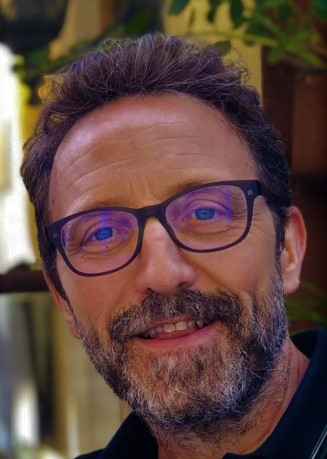
Prof. Luigi Grossi
Position: Professor University of Padova, Italy
Luigi Grossi obtained his PhD in Statistics at the University of Bologna and has been assistant professor at the University of Parma. He has been Visiting Fellow at the PennState University (USA), the University of Warwick (UK), University of Aarhus (DK) and University of Loughborough (UK). He has been Associate Fellow at the Department of Economics, University of Warwick. He has worked on many projects financed by the Italian Ministry of Education and by the European Commission about Energy Economics and Robust Statistics. He is External Expert of the European Commission for the compliance of Electricity Markets to the REMIT regulation and monitoring of market manipulation events. He has been the Guest Editor of a special issue of Energy Economics on “Quantitative Methods for Energy Markets”. He has supervised many PhD students and post-doc students engaged in the analysis of Energy Markets. He is author of several papers published on international journals such as Energy Economics, The Energy Journal, Energy Policy, Oxford Economic Papers, Computational Statistics and Data Analysis, Environmental and Ecological Statistics, Technological Forecasting and Social Change, Environmental and Resource Economics.
Title of the presentation: Machine learning models for the prediction of Italian electricity prices. Do they really outperform the benchmark?

Prof. Martin Wagner
Position: Professor of Economics at the University of Klagenfurt, Chief Economic Advisor at the Bank of Slovenia and Fellow of the Macroeconomics and Economic Policy group at the Institute for Advanced Studies, Vienna
Martin Wagner currently is Professor of Economics at the University of Klagenfurt, Chief Economic Advisor at the Bank of Slovenia and Fellow of the Macroeconomics and Economic Policy group at the Institute for Advanced Studies, Vienna. From October 2017 until end of 2018 he was Chief Economist of the Bank of Slovenia, being on leave from Technical University Dortmund, where we has been Professor of Econometrics and Statistics in the Faculty of Statistics of the Technical University Dortmund from 2012 until 2019. He was educated in Vienna, at the Technical University and the Institute for Advanced Studies, obtaining Diplomas in Mathematics (1995) and Economics (1998), as well as his Doctorate (2000). He obtained his Habilitation in Economics in 2007 at the University of Bern. Martin Wagner has worked at the Technical University of Vienna, the Institute for Advanced Studies in Vienna, the University of Bern and has been Professor of Econometrics and Empirical Economics at the University of Graz before his arrival in Dortmund. Visiting positions have brought him to Princeton University and the European University Institute in Florence. His work has been published, amongst other outlets, in Journal of Econometrics, Econometric Theory, Journal of Applied Econometrics, Econometric Reviews, Econometrics, Oxford Bulletin of Economics and Statistics, Journal of Empirical Finance, Economics of Transition and Ecological Economics.
Title of the presentation (tentative): Testing Linear Cointegration Against Smooth Transition Cointegration

Prof. Christian H. Weiß
Position: Professor in the Department of Mathematics and Statistics at the Helmut Schmidt University in Hamburg, Germany
Christian H. Weiß is a Professor in the Department of Mathematics and Statistics at the Helmut Schmidt University in Hamburg, Germany. He got his doctoral degree in mathematical statistics from the University of Würzburg, Germany. His research areas include time series analysis, statistical quality control, and computational statistics. He is an author of several textbooks and published his work in international scientific journals such as Bernoulli, Journal of the American Statistical Association, Journal of Multivariate Analysis, Journal of Quality Technology, Journal of the Royal Statistical Society, and Journal of Time Series Analysis..
Title of the presentation (tentative): PMF-Forecasting for Count Processes

Prof. Wesley S. Burr
Position: Assistant Professor, Statistics. Department of Mathematics, Trent University
Wesley S. Burr is a statistician and professor at Trent University in Ontario, Canada. He completed his PhD under the supervision of David J. Thomson at Queen's University in Kingston, Ontario in 2012, and then joined Health Canada's Population Studies Division as a Canadian Governmental Laboratories Visiting Fellow. He began a tenure-track position at Trent University in 2016 and was granted tenure and promotion to Associate Professor in 2022. Wesley's work on time series is primarily focused on applications and theory relating to frequency-domain statistics of time series, and he is interested in problems of imputation, frequency stationarity, and statistics for estimation and detection of signals in time series, as well as applications in environmental epidemiology, space physics, and spatiotemporal modeling of biofluids.
Title of the presentation (tentative): Assessing Statistical Performance of Time Series Interpolators

Dr. Julien Siebert
Position: Senior AI expert for the Fraunhofer Institute for Experimental Software Engineering IESE in Kaisersautern, Germany
Dr. Julien Siebert currently works as a senior AI expert for the Fraunhofer Institute for Experimental Software Engineering IESE in Kaisersautern, Germany. He studied engineering sciences and AI and received his PhD at the University of Lorraine / INRIA Grand Est on the topic of co-simulation and multi-modeling for complex systems and initiated a co-simulation platform called mecsyco (http://mecsyco.com/). He spent two years as a postdoc at the Technical University of Berlin in the department of theoretical physics, working on the simulation of nonlinear systems and the detection of collective phenomena such as propagating waves, synchronization of coupled oscillators. Before joining Fraunhofer, Dr. Julien Siebert worked as a data scientist for Zalando in Berlin. His current research lies at the intersection of software engineering and data science, with a particular interest in time series analysis.
Title of the presentation (tentative): A systematic review of Python packages for time series analysis
These were the plenary Talks of ITISE 2021
ITISE 2019
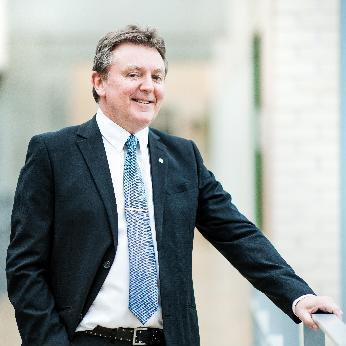
Prof. Per Bjarte Solibakke
Position: Professor and Associate Dean for Education, Faculty of Economics, Norwegian University of Science and Technology | NTNU · Department of International Business.
Vice Dean for Education, Faculty of Ecdonomics and Management, Department of International Business, +47 70161427 +4790035606, Kunnskapsparken, KP-229, Ålesund, Larsgårdsveien 2
Academic disciplines: Business, Econometrics, Economics
Subjects: Dervatives: Forward/Futures and Options, Energy policy of the Europan Union, Energy Markets, Econometrics of Financial Markets, Financial economics, General financial markets, Corporate finance and governance, International finance, Casflows and Net Present values, Risk analysis, Risk management, Corporate finance, Volatility Indices,
Education:
- 01.01.2004 - 01.06.2006 PEDUP ved NTNU Norwegian University of Science and Technology Pedagogisk utviklingsprogram for vitenskapelig personale ved NTNU. Seksjon for Universitetspedagogikk, NTNU
- 01.08.1997 - 31.12.2001 Doktorprogram ved NHH i Bergen Norwegian School of Economics Dr.oecon graden godkjent desember 2001. Avhandling: Essays on Changing Volatility in Thinly Traded Equity Markets.
- 01.08.1995 - 31.12.1996 Høyere avdelings eksamen (HAE) ved NHH i Bergen Norwegian School of Economics Høyere avdeling eksamen desember 1996. Oppgave: Two Essays on Asset Volatility in the Norwegian Equity Market for the period 1983 to 1994.
- 01.01.1988 - 31.12.1990 Doktorprogram ved NTNU i Trondheim Norwegian University of Science and Technology Avlagt eksamener tilsvarende faglige krav ved doktorgrad, NTNU (68 belastningstimer).
- 01.01.1984 - 31.12.1987 Hospitant Sivilingeniør NTNU i Trondheim Norwegian University of Science and Technology Hospitant ved Norges Teknisk Naturvitenskapelige Universitet i Trondheim. Fagportefølje: Kvantitaiv økonomi (operasjonsanalyse 1 og 2), matematikk og statistikk (pålitelighetsanalyse), datafag innen systmering, databaser og ekspertsystmer (programming logic).
- 01.08.1979 - 01.06.1983 Siviløkonom Norwegian School of Economics Siviløkonom med fordypning økonomisk styring
- 01.08.1974 - 01.06.1977 Generell Studiekompetanse (videreg. skole) Florø

Prof. Thorsten LEHNERT. Luxembourg School of Finance (LSF)
Position: Full professor of Finance. Luxembourg School of Finance (LSF)
Research Topics Investments, Derivatives, Credit Risk, Market Volatility, Investor Psychology
Faculty or Centre Faculty of Law, Economics and Finance. Research Unit Luxembourg School of Finance (LSF). Postal Address Campus Kirchberg, Université du Luxembourg 6, rue Richard Coudenhove-Kalergi L-1359 Luxembourg. Campus Office F 210 .
Education: Maastricht University, School of Business and Economics: Ph.D. in Finance, December 2002 University of Bonn, Faculty of Law and Economics: Diplom in Economics (dipl. rer. pol.), December 1998.
Employment: University of Luxembourg, Luxembourg School of Finance: Professor of Finance, 2009-present Maastricht University, School of Business and Economics: Associate Professor of Finance, 2008-2009 Assistant Professor of Finance, 2003-2007 Maastricht Research School of Economics of Technology and Organizations, Maastricht, Netherlands: Senior research fellow, 2004-2009. Radboud University Nijmegen, Nijmegen Center for Economics: Adjunct Associate Professor of Finance, 2006-2008.
Selected Media Exposure: Art World Prepares for a Challenging Year - New York Times - Jan 28th 2016 A Widespread Chill in Art Sales - Wall Street Journal - Jan 29th 2016 Les ventes d'art coincées dans leur bulle – Le Figaro – Jan 27th 2016 Art bubble Brewing? – CNBC – Jan 20th 2016 Academics Say the Art Market Bubble Is About to Burst, Are They Right? – Artnet News – Jan 19th 2016 Art market in 'mania phase' and risks bursting of the bubble, report says - The Guardian – Jan 17th 2016.
Other professional activities: Director, Master of Banking and Finance, University of Luxembourg, 2016-present. Founding Head of the Doctoral School of Economics and Finance, University of Luxembourg, 2011-2016. Guest Editor, Journal of Empirical Finance, Special Issue: Alternative Investments, 2017. Organizer of the Alternative Investments conference, June 2016, Monte Carlo, Monaco. Guest Editor, Journal of Empirical Finance, Special Issue: European Sovereign Debt Crisis, 2016. Organizer of the European Sovereign Debt Crisis conference, March 2015, Monte Carlo, Monaco. Organizer of the Pierre Werner PhD Workshop, October 2014, Luxembourg. Organizer of the Financial Management Association Meeting, June 2013, Luxembourg. Organizer of the Liege-Luxembourg-Maastricht PhD Workshop, April 2013, Luxembourg. Organizer of the Conference “Financial Stability, Bank Risk and Regulation in the Light of the Crisis”, Luxembourg, November 2012. Director, MPhil program Economic and Financial Research, Faculty of Economics and Business Administration, Maastricht University, 2008- 2009. Board Member, Research School METEOR, 2008-2009. Academic Advisor to the Dutch Ministry of Finance. 2007-2008.
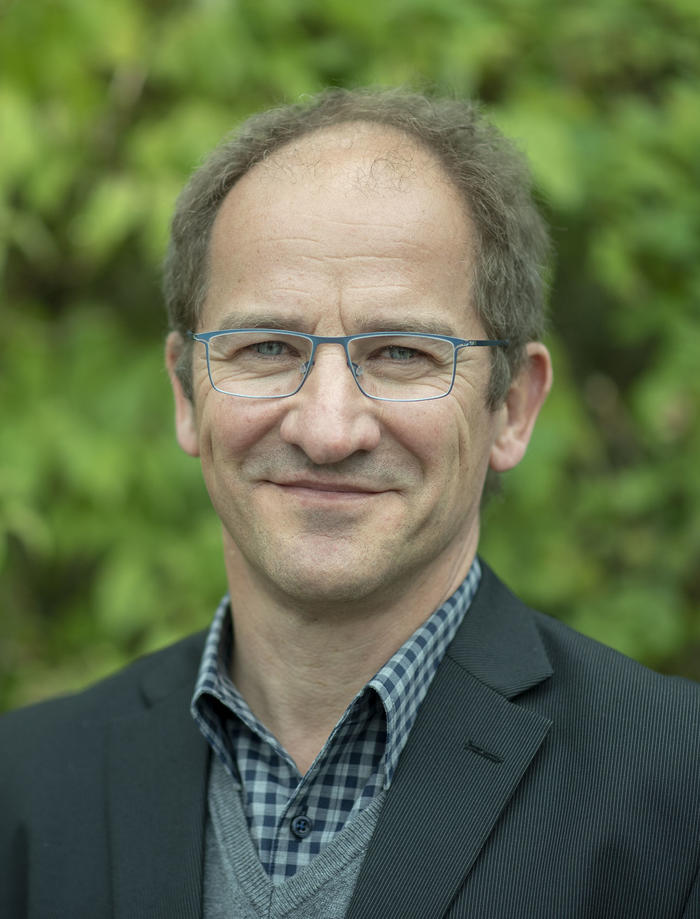
Prof. Dieter Nautz
Position: Freie Universität Berlin. Fachbereich Wirtschaftswissenschaft. Chair of Econometrics. Professor
Boltzmannstr. 20, Raum 300, 14195 Berlin
Prof. Dr. Dieter Nautz holds the Chair of Econometrics at the Free University Berlin. His research interests focus on applied time series econometrics, empirical macroeconomics and monetary policy.
Curriculum Vitae:
- Apr 2009. Professor of Econometrics at the Institut für Statistik und Ökonometrie, Freie Universität Berlin
- Oct 2000 - Mar 2009 Professor of Applied Macroeconomics, Johann Wolfgang Goethe-Universität Frankfurt am Main 1999 - 2000 Guest Professor at the Institut für Wirtschaftstheorie III, Humboldt-Universität Berlin
- Jul 1999 Habilitation at the Department of Business and Economics, Freie Universität Berlin
- 1994 - 1999 Research Fellow at the DFG-Project C3 Stability of Money Demand Stability, Humboldt-Universität Berlin
- 1992 - 1997 Assistant Professor at the Institut für Statistik und Ökonometrie, Freie Universität Berlin
- Nov 1993 Ph.D. at the Department of Business and Economics, Freie Universität Berlin
- 1990 - 1993 Ph.D. Program Applied Microeconomics, Freie Universität Berlin Volkswagen Foundation scholar
- 1984 - 1990 Mathematics degree at the University of Heidelberg
Memberships, Positions:
- Research Committee Econometrics Verein für Socialpolitik
- Research Committee Monetary Economics Verein für Socialpolitik
- Research Committee Macroeconomics Verein für Socialpolitik
- Editorial Board International Economics and Economic Policy
- Scientific Advisory Board Deutsches Institut für Wirtschaftsforschung (DIW) (2005-2015)
- Research Fellow Center for Financial Studies
- Collaborative Research Centre 649 "Economic Risk", project C14 "Expectations management of central banks"
Selected Publications:
- The Anchoring of Inflation Expectationss in the Short and in the Long Run, Macroeconomic Dynamics (forthcoming). PDF (with Netsunajew, A. & Strohsal, T.)
- Central Bank Communication and the Perception of Monetary Policy by Financial Market Experts, Journal of Money, Credit, and Banking, 2012, 44(2-3), 323-340. link (with Schmidt, S.)
- Inflation, Price Dispersion and Market Integration through the Lens of a Monetary Search Model. European Economic Review, 56(2012), 624-634. link (with Becker, S)
- Does the Euro follow the German Mark? Evidence from the Monetary Model of the Exchange Rate, European Economic Review, June 2006, 50(5): 1279-1295. (with Offermanns, C.J.)
- Overbidding in Fixed Rate Tenders – An Empirical Assessment of Alternative Explanations, European Economic Review, April 2006, 50(3): 631-646. (with Oechssler J.)
- Banks' Demand for Reserves When Future Monetary Policy is Uncertain. Journal of Monetary Economics, 1998, 42(1): 161-83.
- How Auctions Reveal Information: A Case Study on German REPO Rates. Journal of Money, Credit, and Banking, 1997, 29(1): 17-25.
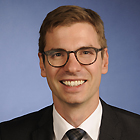
Professor Dr. Stephan Schlüter
Position: Professor. Faculty of Mathematics, Natural and Economic Sciences University of Applied Sciences Ulm Prittwitzstr. 10 89075 Ulm
Roles:
- Institute of Energy and Drive Technology
- Institute of Applied Research
Research:
- Multivariate time series analysis
- Statistical analysis of energy commodities
- Complex energy products (swing options, gas storages, batteries)
- Time series forecasting
Selected Publications:
- Schlüter S, Kresoja M. Two Preprocessing Algorithms for Climate Time Series. Working Paper, 2019.
- Schlüter S. A sine-based Model for the Volatility of Daily Photovoltaic Production. Working Paper, 2017.
- Hanfeld M, Schlüter S. Operating a Swing Option on Today's Gas Markets - How Least Squares Monte Carlo Works and Why it is Beneficial. Zeitschrift für Energiewirtschaft, 2:137-145, 2017.
- Herwartz H, Schlüter S. On the Predictive Information of Futures' Price - a Wavelet Based Assessment. Journal of Forecasting, 2016.
- Schlüter S, Deuschle C. Wavelet-Based Forecasting of ARIMA Time Series - an Empirical Comparison of Different Methods. Managerial Economics, 15(1):107-131, 2015.

Prof. J. Hinaunye Eita
Position: Professor and Head of Academics School of Economics College of Business and Economics . University of Johannesburg
Contact Details : D Ring 230, +27 (0)11 559 2105, Auckland Park Campus. University of Johannesburg
J. Hinaunye Eita is an economist and econometrician who holds a PhD in Economics from the University of Pretoria (South Africa). He is currently a Professor and Head of Academics, at the School of Economics, University of Johannesburg (South Africa). He held various positions including among others, Research Professor for the Faculty of Commerce and Administration at North-West University (South Africa), Professor of economics at North-West University (South Africa), Associate Professor of economics at Monash University (Australia and South Africa), Lecturer at the University of Namibia (Namibia). He holds a C rating from the National Research Foundation (NRF) of South Africa as an established researcher. His research areas are economic modelling (time series econometrics, panel data econometrics, macro-econometric modelling), international trade, international finance, financial markets. He has experience in building macro-econometric models. He worked on the following projects:
- Development of a macroeconomic model of the state owned companies under the Department of Public Enterprise (DPE) portfolio. Eita was a project leader and technical lead for this research project. This research project was commissioned and funded by the Department of Public Enterprises (Government of the Republic of South Africa). This project developed a macroeconomic model that can be used to evaluate the socio-economic impact of state-owned companies. One of the key component was the labour sector. This model estimated the effect of capital investment expenditure in state owned companies on employment, unemployment in various sectors of the South African economy, poverty and inequality. It also investigated the effect of key macroeconomic variables on employment, unemployment, inequality and poverty. This project was conducted for the period March 2017 to January 2018.
- The effect of Transnet on the South African economy. This project was commissioned and funded by the Department of Public Enterprises (Government of the Republic of South Africa). Eita was a project leader and researcher on this research project. This project was on the macroeconomic impact of Transnet on employment, international trade, logistic costs and investment in various sectors of the South African economy. This project was undertaken for the period March 2017 to March 2018.
- Macro-econometric model for the Namibian Economy, 2012. Eita was sole researcher who developed a macro-econometric model of the Namibian economy. The research was completed in 2012. The client for this project is First National Bank of Namibia. One of the main components of this macro-econometric model is labour. This model estimates the responsiveness of employment or labour to several macroeconomic variables. This is a macro-econometric model has the supply and demand sides of the economy. It can be used for forecasting. This project had a significant component of capacity building. Eita trained the staff of First National Bank of Namibia in macro-econometric modelling.
- Investigating the Macroeconomic Impact of the Proposed National Pension Fund in Namibia”. This research project was commissioned and funded by the Social Security Commission of Namibia. Eita was part of the team that prepared the economic section on the impact of the proposed impact National Pension Fund on employment and economic growth. This research project was undertaken for the period 2008 to 2012
- Supply side and demand macroeconomic model of the Namibian economy. This project was commissioned and funded by the National Planning Commission – Office of the President, Government of the Republic of Namibia, September 2013 – January 2015. Eita developed a macroeconomic model of the Namibian economy that can be used to investigate the effect of demand and supply variables on employment, unemployment and wage. This project had a significant component of capacity building, and Eita trained of the National Planning Commission on how to build macroeconomic model.
- Poverty and Social Impact Analysis of VAT Zero Rating of Basic Commodities on Poor Households and Government Revenue in Namibia”, 2008 -2009. This project was commissioned and funded by the National Planning Commission of Namibia (Government of the Republic of Namibia). Eita was part of the research team that prepared the report for this research project. This project was undertaken and completed in 2009.
- Determinants of unemployment in Namibia. Eita was the sole researcher for this research project. This research project was financed by UNDP Namibia on behalf of the Government of the Republic of Namibia. This research project developed a model that can be used to forecast unemployment in Namibia. This project was undertaken and completed in 2008.
He successfully supervised Masters and PhD students in the areas of macroeconomic model, international trade and finance and, financial markets. He published research papers in leading scientific journals, on the South African, Namibian and Botswana economies. His publications appeared in (among others), South African Journal of Economics; South African Journal of Economic and Management Sciences; African Finance Journal; Journal for Studies in Economics and Econometrics, Journal of Economic and Financial Sciences, Journal of Developing Areas, Economia Internazionale, Agrekon, Journal of Developing Areas, International Journal of the Sustainable Economy, Development Southern Africa, Cogent Economics and Finance.
5th International conference on Time Series and Forecasting (ITISE)
| Prof. Dr. Peter M Robinson |
|---|
Prof. Dr. Peter M Robinson
Elected Honours: Peter M Robinson has been Tooke Professor of Economic Science and Statistics in the Economics Department of the London School of Economics, University of London, since 1995. Between 1998 and 2003 he held a Leverhulme Trust Personal Research Professorship. From 1984 to 1995 he was Professor of Econometrics at the London School of Economics; before that he was a Professor in the Mathematics Department of the University of Surrey, and previously held teaching positions at the University of British Columbia, Harvard University and the London School of Economics. He received his PhD degree from the Australian National University and batchelors and masters degrees from the University of London, and an honorary doctorate from Universidad Carlos III, Madrid. He has served as Co-Editor of the journals Econometrica, Econometric Theory, the Journal of Econometrics, and the Journal of Time Series Analysis . He is currently Associate Editor of the journals Annals of Statistics and Statistical Inference for Stochastic Processes. He was previously Associate Editor of various economic and statistical journals. He currently serves on the Executive Council of the Journal of Econometrics , on the Advisory Board of Econometric Theory, and as an Advisory Editor of the Journal of Time Series Analysis. He has published numerous articles in journals including the Annals of Statistics and Econometrica, as well as in books, and has one edited and one co-edited book. He has held research grants from the National Science Foundation in the USA, from the Economic and Social Research Council, the Science Research Council and the Leverhulme Trust in the United Kingdom, and from the European Commission. He is a Fellow of the British Academy, a Fellow of the Econometric Society, a Fellow of the Institute of Mathematical Statistics, and an elected Member of the International Statistical Institute. (for details see the web page). |
| Prof Andrew C. Harvey |
|---|
Prof Andrew C. Harvey
Andrew Harvey is Emeritus Professor of Econometrics in the Faculty of Economics, University of Cambridge, and a Fellow of Corpus Christi College. Prior to that he was Professor of Econometrics at the London School of Economics. He is a Fellow of the Econometric Society and a Fellow of the British Academy (FBA). He has published over one hundred articles in journals and edited volumes. He is the author of two textbooks, The Econometric Analysis of Time Series and Time Series Models, and two research monographs, Forecasting, Structural Time Series Models and the Kalman Filter (1989) and, most recently, Dynamic Models for Volatility and Heavy Tails (2013). He is one of the developers of the STAMP package. ABSTRACT: Score-driven models (known as DCS or GAS) provide a unified frame- work for handling changing volatility that is particularly attractive when the conditional distribution of an observation is heavy-tailed. When imple- mented in an EGARCH model, analytic expressions may be derived for un- conditional moments, autocorrelations and moments of multi-step forecasts. Furthermore a full asymptotic distribution theory for maximum likelihood estimators can be developed, including an analytic expression for the as- ymptotic covariance matrix of the estimators in the basic case. Not only do these new models have more attractive statistical properties than standard GARCH models, but there is increasing evidence that they fit better. The approach extends naturally to EGARCH-M and changing correlation. Fur- ther details can be found on the websites - http://www.econ.cam.ac.uk/DCS and http://www.gasmodel.com. This talk will focus on score-driven models for realized variance (RV). It is shown that a GB2 conditional distribution provides important insights into the structure of series which, like RV, are instrinsically positive. |
| Prof. Salah BOURENNANE |
|---|
Prof. Salah BOURENNANE
Salah Bourennane is currently a full Professor and he held also the position of the Dean of Research at the Ecole Centrale de Marseille, France. He is also the head of the Multidimensional Signals Group at Institut Fresnel, Marseille. He has over 30 years of research experience in the field of signal and image processing. His current research interests include statistical signal processing, array processing, image processing, remote sensing, tensor signal processing, and performance analysis. He authored over 350 research papers in various top-tier international journals and conferences, and edited many books and served as a guest editor of several special issues. He served on the editorial boards of many international journals and proceedings including the International Journal of Signal Processing, Image Processing and Pattern Recognition, The International Journal of Image and Signal Systems Engineering, Journal of Remote Sensing and Technology, among others. He has served on the technical program committees for numerous premier conferences and workshops including Advanced Concepts for Intelligent Vision Systems, International conference on latent variable analysis and signal separation, International Conference on Vision, Image and Signal Processing, and many others. He was an organizer of several international conferences such as the 6th European Workshop on Visual Information Processing at Marseille, 2016. He received a Ph.D. degree from Institut National Polytechnique de Grenoble, France, in signal processing. TITLE: Time Series Analysis: Bearing and Range of Buried Objects Estimation in Underwater Acoustics Abstract: Non-invasive range and bearing estimation of buried objects in the underwater acoustic environment, has received considerable attention. A model-based parameter estimation problem using either a horizontal or vertical array has been studied in underwater acoustics. Many interesting studies have been recently developed. Some of them use acoustic scattering to localize objects by analyzing acoustic resonance in the time-frequency domain, other techniques based on signal processing such as time reversal technic, have been also developed. The emphasis of the talk is on techniques that estimate simultaneous range and bearing using wideband and fully correlated signals scattered from near field and far field buried objects in a noisy environment. The final part of the lecture deals with the performance of the different algorithms using experimental data recorded during underwater acoustic experiments. |
| Dr Karsten Webel |
|---|
Dr Karsten Webel
TITLE: An overall seasonality test based on recursive feature elimination in conditional random forests Abstract: To check an observed time series for presence of seasonality, different statistical tests tailored to particular manifestations of seasonality have been developed over recent decades. We suggest a generic scheme to construct an overall seasonality test from a given set of candidate tests. The main building blocks are (1) a recursive feature elimination algorithm in conditional random forests to identify the most informative candidate tests and (2) a final classification rule derived from a single pruned conditional inference tree based on the identified tests. Using a broad set of simulated ARIMA processes that is representative of the Bundesbank's time series database, we identify the modified QS and Friedman tests as being most informative when computed on the residuals obtained from fitting a non-seasonal ARIMA model to the original input series. The resulting classification rule has low type I and type II misclassification rates whilst avoiding excessive complexity. |
| Univ. Prof. Dr. Robert Kunst |
|---|
Univ. Prof. Dr. Robert Kunst
TITLE: Simulation-based selection of prediction models Abstract:We target an assessment of the potential benefits of basing model selection decisions in a forecasting context on simulations that fuse data information and the structure hypothesized by tentative rival models. These procedures can be applied to any empirical forecasting problems. Our main focus is, however, on macro-economic forecasting. Our procedure aims at choosing among a small number of tentative forecast models in the presence of data. From models fitted to the data, pseudo-data are generated. Again, the models are applied to the pseudodata and their out-of-sample performance is evaluated. The ultimate choice of the forecasting model is based on the relative performance of rival models in predicting ‘their own data’ and those of the rival model. (for details see the web page). |
| Prof. Dr. Uwe Hassler |
|---|
Prof. Dr. Uwe Hassler
TITLE: Discontinuity of Fully Extended (Local) Whittle Estimation Abstract:We consider the fully extended local Whittle estimator of the fractional order of integration d proposed by Abadir, Distaso and Giraitis (2007), and the extended parametric Whittle estimator suggested by Shao (2010). They are valid under stationarity as well as nonstationarity: a priori knowledge whether the true d < 1/2 or not is not required. Experimentally, we observe a lack of continuity of the objective functions at d = 1/2 that has not been reported before. It results in a pile-up of the estimates at d = 1/2 when the true value is in a neighbourhood to this half point. Consequently, studentized test statistics may be heavily oversized. (for details see the web page). |
Plenary Talks. Previous edition ITISE
| Prof. Dr. Fredj JAWADI |
|---|
Prof. Dr. Fredj JAWADI
His research focuses on Financial Economics (Financial Markets, Empirical Finance, Market Microstructure, Islamic Finance, Monetary Policy, Macroeconomics), & Applied Econometrics (Time Series, Nonlinear Dynamics, Macroeconometrics,Panel Data). He has over seventy papers published in various International Journals and co-authored and co-edited several books and book chapters. He has also served as an Associate Editor or a Subject Editor in several Journal and Chairman of two International Conferences: The first one covers topics on Computational Economics (International Symposium in Computational Economics and Finance (www.iscef.com ), while the second one looks at the recent developments in financial and nonlinear econometrics: International Workshop on Financial Markets and Nonlinear Dynamics (www.fmnd.fr). (for details see the web page). |
| Prof. Dr. Joerg Breitung |
|---|
Prof. Dr. Joerg Breitung
(for details see the web page). |
| Dr. Travis J. Berge |
|---|
Senior Economis, Dr. Travis J. Berge
(for details see the web page). |
| Dr. Anna Korzeniewska |
|---|
Dr. Anna Korzeniewska
|
| Dr. Joan Paredes |
|---|
Senior Scientist, Dr. Joan Paredes
Functions:
(for details see the web page). |
| Dr. Pekka Koponen |
|---|
Senior Scientist, Dr. Pekka Koponen
He has contributed in several projects regarding forecasting and optimization of the control responses of the demand. In his first projects at VTT the focus was on the energy management and trading of large base metal companies but in 1996 his main focus shifted to enabling the use of aggregated flexibilities of small residential electricity consumers for the electricity markets and grids. Now he works in the project “Improved Modelling of Electric Loads for Enabling Demand Response by Applying Physical and Data-Driven Models” (RESPONSE) that spans 2015 – 2018 and is funded by the Academy of Finland . He alsoparticipates in an EU H2020 project SmartNet that studies future TSO-DSO interaction schemes, market architectures and ICT solutions for the integration of power system ancillary services (provision of flexibility and fast reserves) from the demand side management and distributed generation. |
| Prof. Dr. Philipp Sibbertsen |
|---|
|
Prof. Dr. Philipp Sibbertsen
|
| Prof. Dr. Gerhard Rünstler |
|---|
|
Prof. Dr. Gerhard Rünstler
|
| Prof. Dr. Michael Graff |
|---|
|
Prof. Dr. Michael Graff
|
| Prof. Dr. Kalle Saastamoinen |
|---|
|
Prof. Dr. Kalle Saastamoinen
|
| Prof. Dr. Rebecca Killick |
|---|
|
Dr. Rebecca Killick
|
| Prof. Daniel Peña Sanchez De Rivera. |
|---|
|
Prof. Daniel Peña Sanchez De Rivera. Title of the Talk: Dimension reduction and forecasting in large data sets of time series
In the same field, he stands out as the Founding President of the Statistical Methods Committee of the Spanish Association for Quality and member of the State High Council of Statistics, Vice President of the Inter-American Institute of Statistics and President of European Courses in Advanced Statistics. He has published thirteen books and more than 190 research articles on Statistics, Quality and its Applications. He is Associate Editor of several international journals and has received national and international awards for research. In 2006 he received the Youden Award for the best article published in “Technometrics”. He is an honorary member of prestigious international associations such as the Institute of Mathematical Statistics and the American Statistical Association. This information is from: Daniel Peña Sanchez De Rivera (UC3M) |
| Prof. Siem Jan Koopman |
|---|
|
Prof. Siem Jan Koopman
Furthermore, he was a Fernand Braudel Senior Fellow at the Department of Economics, European University Institute, Florence, Italy, in 2010. His Ph.D. is from the LSE and dates back to 1992. The monograph Time Series Analysis by State Space Methods is written by J. Durbin and SJK. The book originally appeared in 2001. The Second Edition is recently published by Oxford University Press, in May 2012. The Durbin & Koopman 2012 book consists of 368 pages. The book An Introduction to State Space Time Series Analysis appeared in 2007 and is written by J.J.F. Commandeur and SJK. His other books (co-authored, software and editorial) are listed here The research interests of SJK cover topics in statistical analysis of time series, financial econometrics, simulation-based estimation, Kalman filter, economic forecasting and, more generally, time series econometrics. His number of publications in refereed journals since 1992 is 75 while his work includes 29 entries in books and discussions. His current citation h-index at Thomson Reuters is 18 and at Google Scholar is 37. He fullfills editorial duties at the Journal of Applied Econometrics and the Journal of Forecasting. Finally he is an OxMetrics software developer and is actively engaged in the development of the time series software packages STAMP and SsfPack. |
| Prof. DI Dr. Manfred DEISTLER |
|---|
|
Em.O.Univ.Prof. DI Dr. Manfred DEISTLER. Title of the Talk: Regular and Singular AR and ARMA Models, The Single and The Mixed Frequency Case: A Structure Theory.
RESEARCH INTERESTS: Identification of linear dynamical systems in ARMA and state space representation, structure and estimation, in particular in the multivariate case, data driven local coordinates, subspace identification Identification of linear dynamical factor- and errors-in-variables models, in particular structure theory Analysis and prediction of financial time series Analysis and prediction of business and market data Analysis of load and price time series for electricity markets PROJECTS: Principal investigator of the FWF project P-17065 Identification of multivariate Dynamic Systems Teamleader of the team TUWIEN of the european research project ERNSI Co-initiator of and group leader at the industrial mathematics competence center, IMCC, Linz Member of the austrian academy of sciences Fellow of the econometric society Fellow of the Journal of Econometrics IEEE Fellow |
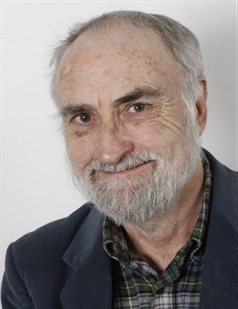 Current Positions :
Current Positions :

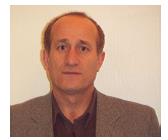 Full Professor and he held also the position of the Dean of Research at the Ecole Centrale de Marseille, France. He is also the head of the Multidimensional Signals Group at Institut Fresnel, Marseille.
Full Professor and he held also the position of the Dean of Research at the Ecole Centrale de Marseille, France. He is also the head of the Multidimensional Signals Group at Institut Fresnel, Marseille.
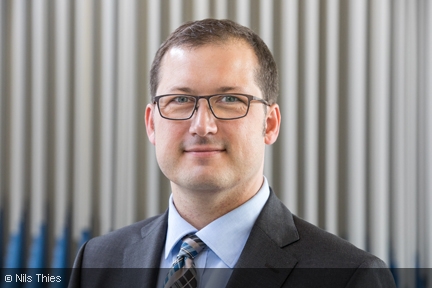 Deutsche Bundesbank, Central Office, Directorate General Statistics, Wilhelm-Epstein-Straße 14,60431 Frankfurt am Main
Deutsche Bundesbank, Central Office, Directorate General Statistics, Wilhelm-Epstein-Straße 14,60431 Frankfurt am Main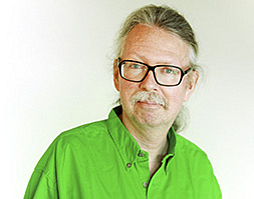
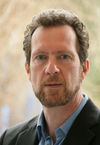 Professor of Statistics and Econometric Methods
Goethe University Frankfurt.
Fachbereich Wirtschaftswissenschaften
Besucheradresse:
Campus Westend
Theodor-W.-Adorno-Platz 4
60323 Frankfurt am Main
Postadresse:
60629 Frankfurt am Main
Professor of Statistics and Econometric Methods
Goethe University Frankfurt.
Fachbereich Wirtschaftswissenschaften
Besucheradresse:
Campus Westend
Theodor-W.-Adorno-Platz 4
60323 Frankfurt am Main
Postadresse:
60629 Frankfurt am Main  Associate Professor of Economics (MCF-HDR) at the University of Evry, and a Researcher Fellow at EconomiX-CNRS (University of Paris West) in France. Also, He is a Deputy Director for CAC (Cliometrics and Complexity Team at IXXI Complex Systems Institute, http://www.ixxi.fr/?p=3219) in France. In addition, he is an Officer of the Society for Economic Measurement in the U.S. (http://sem.society.cmu.edu/home.html ), and a Research Fellow at the Economic Research Forum (ERF).
Associate Professor of Economics (MCF-HDR) at the University of Evry, and a Researcher Fellow at EconomiX-CNRS (University of Paris West) in France. Also, He is a Deputy Director for CAC (Cliometrics and Complexity Team at IXXI Complex Systems Institute, http://www.ixxi.fr/?p=3219) in France. In addition, he is an Officer of the Society for Economic Measurement in the U.S. (http://sem.society.cmu.edu/home.html ), and a Research Fellow at the Economic Research Forum (ERF).  Institut für Ökonometrie und Statistik. Universität zu Köln
Institut für Ökonometrie und Statistik. Universität zu Köln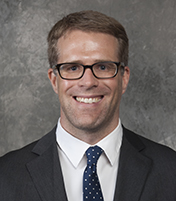 Current Macroeconomic Conditions Section. Research and Statistics. Senior Economist, Board of Governors of the Federal Reserve System (2015-present)
Current Macroeconomic Conditions Section. Research and Statistics. Senior Economist, Board of Governors of the Federal Reserve System (2015-present) 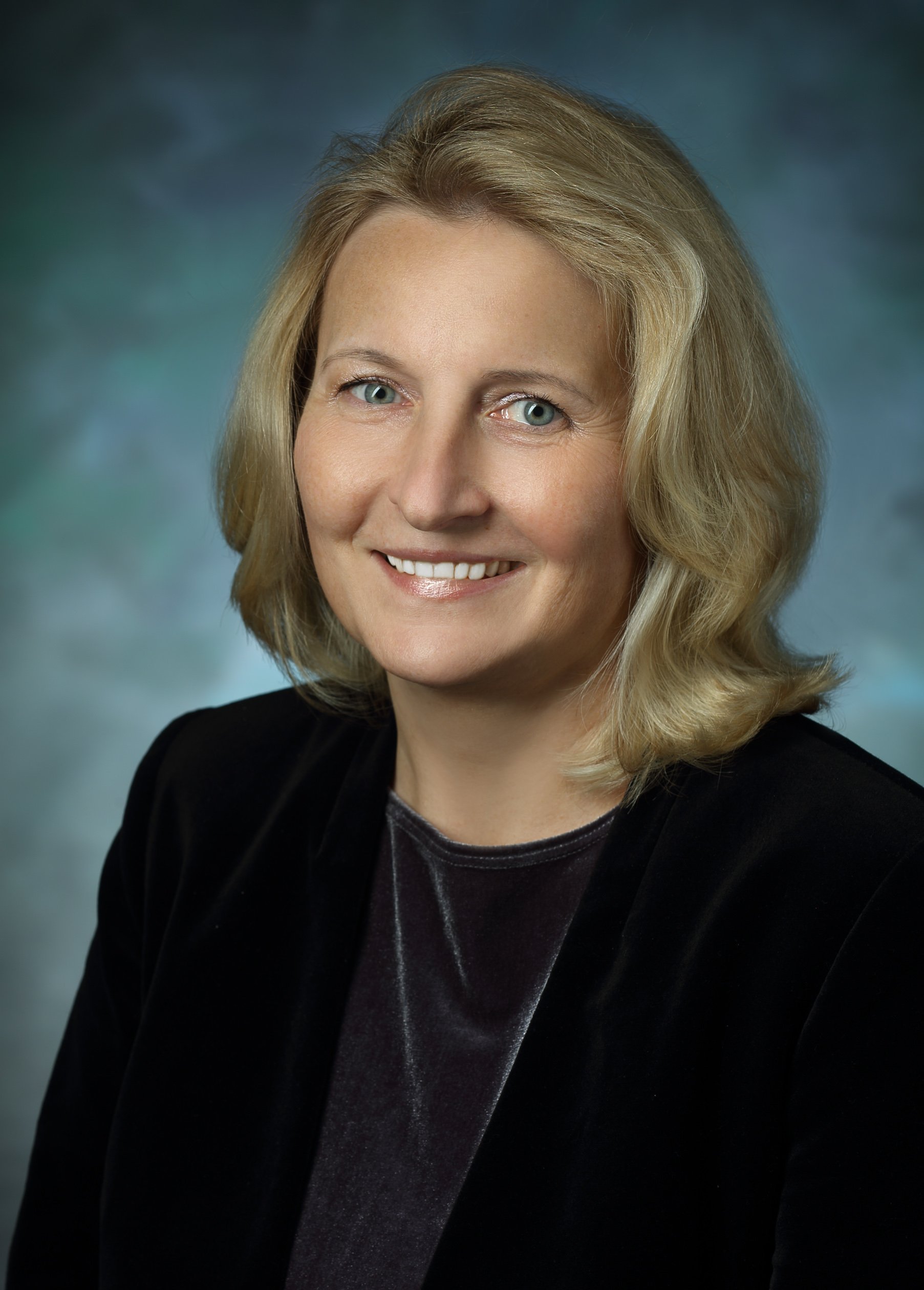 Talk Title: Event Related Causality analysis of electrocorticographic (ECoG) time series as diagnostic tool for epileptic surgery
Talk Title: Event Related Causality analysis of electrocorticographic (ECoG) time series as diagnostic tool for epileptic surgery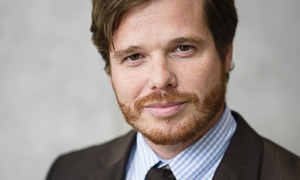 Dr. Joan Paredes, Economist,
Dr. Joan Paredes, Economist, 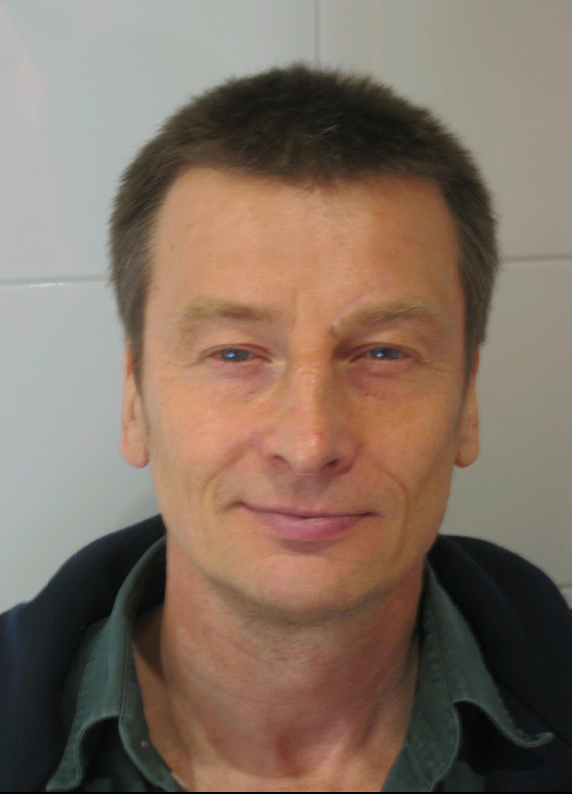 Dr. Veli Pekka Koponen is a senior scientist at VTT Technical Research Centre of Finland. He joined VTT in 1988 and has there developed various issues related to the customer connections of energy networks and markets, such as demand side management, demand response, aggregation of distributed energy resources (DER) for the markets, distributed ancillary service provision, smart metering requirements, modelling, forecasting and optimization of the operation of DER comprising consumption, storages, generation and micro-grids, energy management, requirements and measurement methods for power quality monitoring, electromagnetic compatibility, grid connection requirements, requirements for communication with DER and related cyber security and data privacy issues. He has received the following degrees: in 2002 Doctor of Technology in Power Engineering from Tampere University of Technology, in 1986 Licentiate of Technology in Control Engineering and in 1981 M.Sc. Tech. in Control Engineering both from Helsinki University of Technology, which is now Aalto University. He has participated in the International Energy Agency Demand Side Management Implementing Agreement (IEA DSM IA) as a national expert both in its tasks and Executive Committee. Now he represents VTT in the national subcommittee of the IEC TC8 on system aspects of power systems.
Dr. Veli Pekka Koponen is a senior scientist at VTT Technical Research Centre of Finland. He joined VTT in 1988 and has there developed various issues related to the customer connections of energy networks and markets, such as demand side management, demand response, aggregation of distributed energy resources (DER) for the markets, distributed ancillary service provision, smart metering requirements, modelling, forecasting and optimization of the operation of DER comprising consumption, storages, generation and micro-grids, energy management, requirements and measurement methods for power quality monitoring, electromagnetic compatibility, grid connection requirements, requirements for communication with DER and related cyber security and data privacy issues. He has received the following degrees: in 2002 Doctor of Technology in Power Engineering from Tampere University of Technology, in 1986 Licentiate of Technology in Control Engineering and in 1981 M.Sc. Tech. in Control Engineering both from Helsinki University of Technology, which is now Aalto University. He has participated in the International Energy Agency Demand Side Management Implementing Agreement (IEA DSM IA) as a national expert both in its tasks and Executive Committee. Now he represents VTT in the national subcommittee of the IEC TC8 on system aspects of power systems. 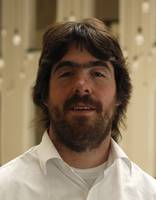 Academmic Positions
Academmic Positions 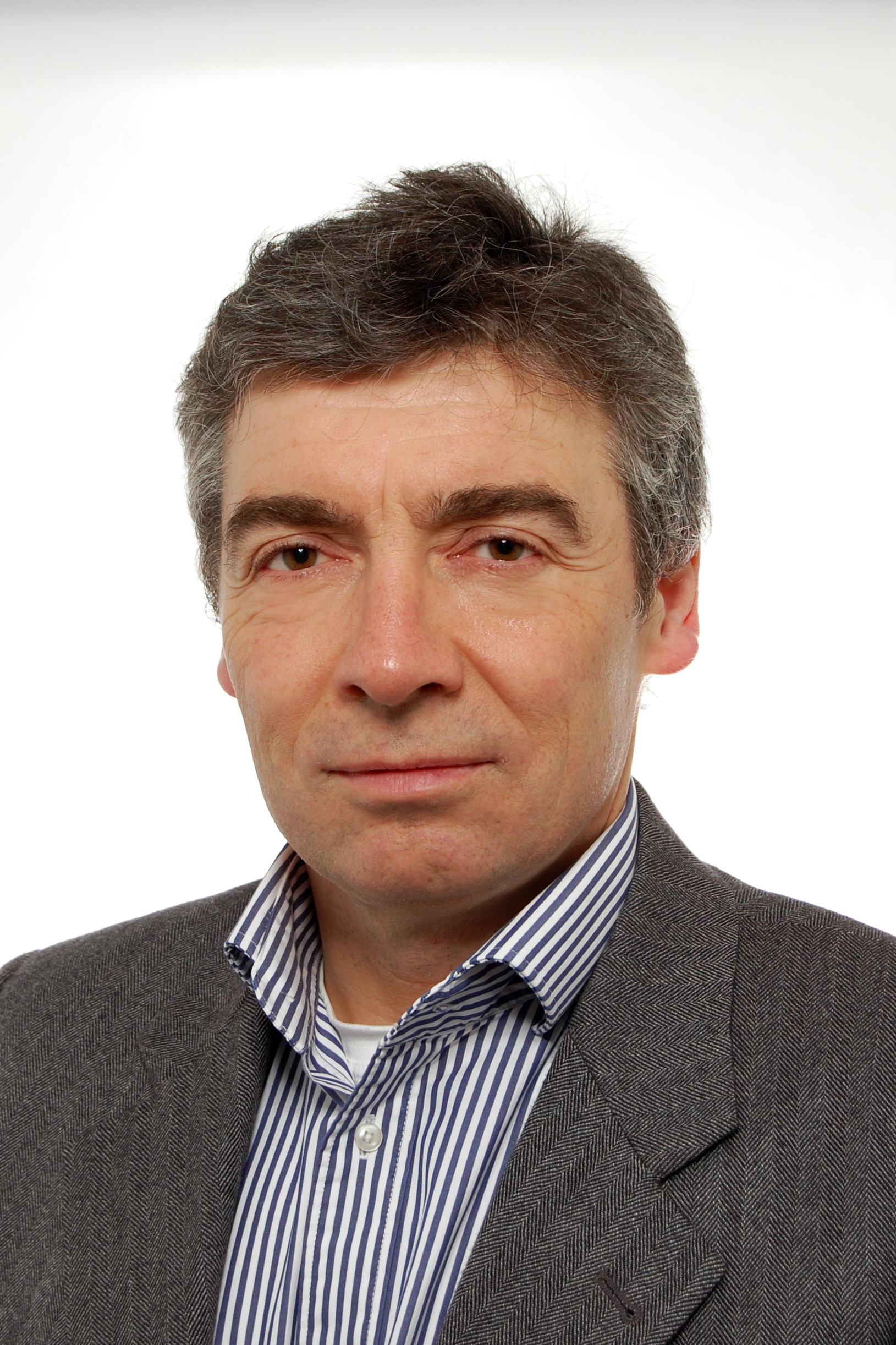 Academmic Positionss
Academmic Positionss  My research is directed to various fields of Economics with emphasis on macroeconomic topis related to economic performance and growth. I am engaged in comparative analyses of educational, financial political and socioeconomic systems and their effects on economic performance. Recently I have extended this research programme to the significance of different legal traditions in shaping the monetary and financial system.
Moreover, I am working on monetary policy, trade policy, international business cycles, and economic forecasting.
My research is directed to various fields of Economics with emphasis on macroeconomic topis related to economic performance and growth. I am engaged in comparative analyses of educational, financial political and socioeconomic systems and their effects on economic performance. Recently I have extended this research programme to the significance of different legal traditions in shaping the monetary and financial system.
Moreover, I am working on monetary policy, trade policy, international business cycles, and economic forecasting. Currently working as a senior lecturer in National Defence University,
Helsinki. Ph.D. of applied mathematics since 2008 from Lappeenranta
University of Technology. My research interests are computational
logic and its applications, AI based expert systems, data classification,
military technology research, teaching technology and its usage. Recent
years I have concentrated in my teaching tasks in Defence University and
tutoring of military research related to operational analysis, mathematical
modelling and simulation.
Currently working as a senior lecturer in National Defence University,
Helsinki. Ph.D. of applied mathematics since 2008 from Lappeenranta
University of Technology. My research interests are computational
logic and its applications, AI based expert systems, data classification,
military technology research, teaching technology and its usage. Recent
years I have concentrated in my teaching tasks in Defence University and
tutoring of military research related to operational analysis, mathematical
modelling and simulation.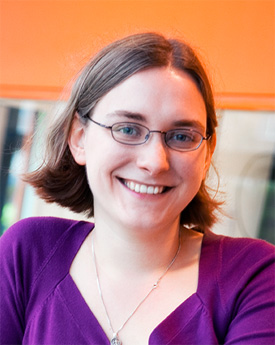 Lecturer in Statistics at Lancaster University. Her research interests include:
nonstationary time series,
changepoints,
multiscale methods in statistics,
applications of wavelets in time series analysis and
time series that arise from energy applications.
Lecturer in Statistics at Lancaster University. Her research interests include:
nonstationary time series,
changepoints,
multiscale methods in statistics,
applications of wavelets in time series analysis and
time series that arise from energy applications.  SJK is Professor of Econometrics at the Vrije Universiteit Amsterdam and research fellow at the Tinbergen Institute, both since 1999. Furthermore, he is a long-term Visiting Professor at CREATES, University of Aarhus and a Visiting Researcher at the European Central Bank, Financial Research. Since 2013, he is a Journal of Applied Econometrics Distinguished Author.
He held positions at the London School of Economics between 1992 and 1997 and at the CentER (Tilburg University) between 1997 and 1999. In 2002 he visited the US Bureau of the Census in Washington DC as an ASA / NSF / US Census / BLS Research Fellow.
SJK is Professor of Econometrics at the Vrije Universiteit Amsterdam and research fellow at the Tinbergen Institute, both since 1999. Furthermore, he is a long-term Visiting Professor at CREATES, University of Aarhus and a Visiting Researcher at the European Central Bank, Financial Research. Since 2013, he is a Journal of Applied Econometrics Distinguished Author.
He held positions at the London School of Economics between 1992 and 1997 and at the CentER (Tilburg University) between 1997 and 1999. In 2002 he visited the US Bureau of the Census in Washington DC as an ASA / NSF / US Census / BLS Research Fellow.